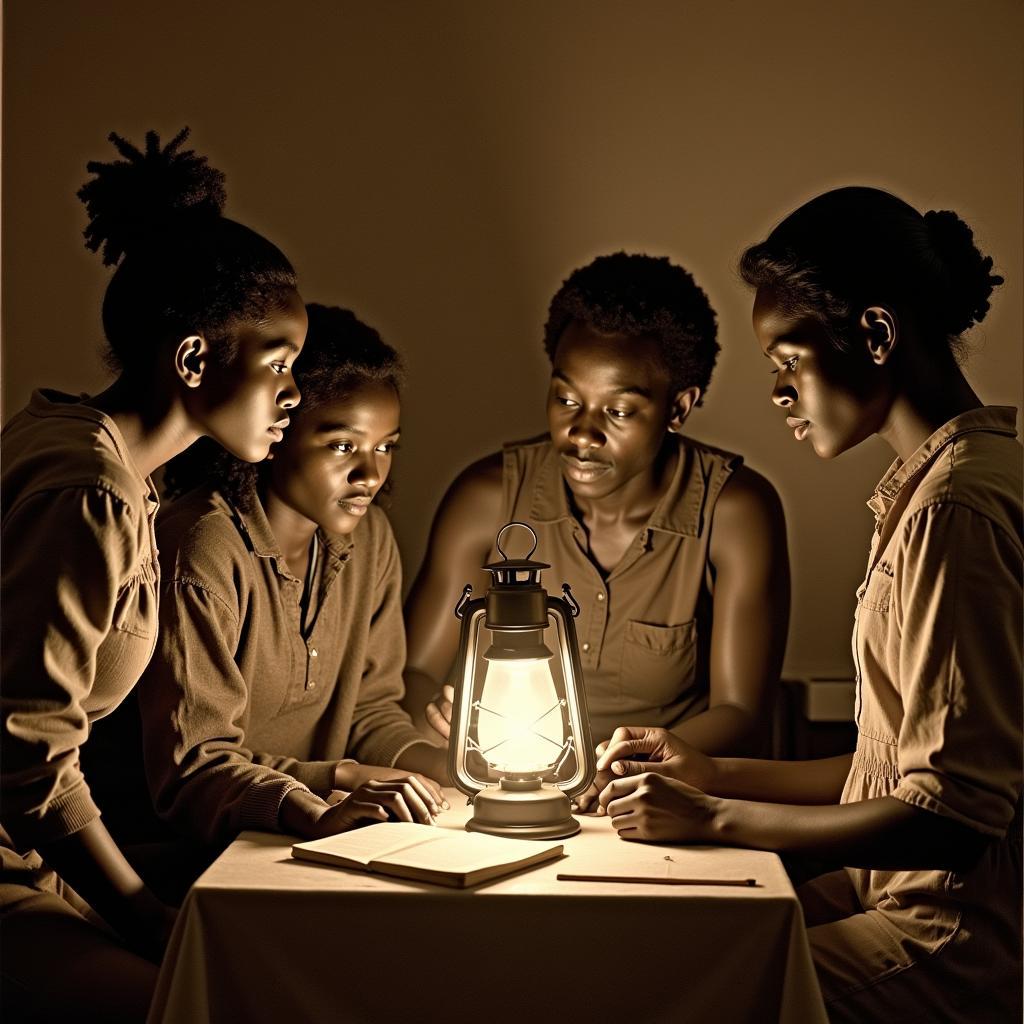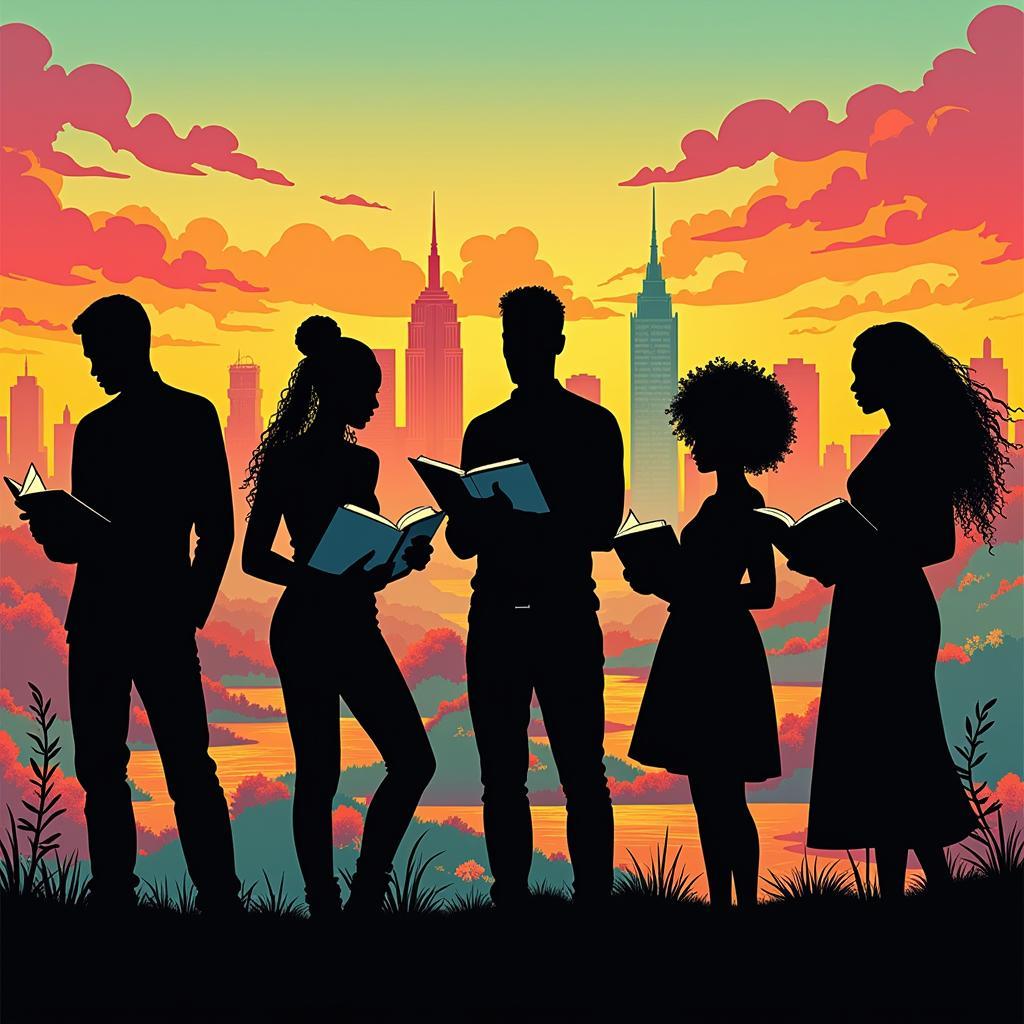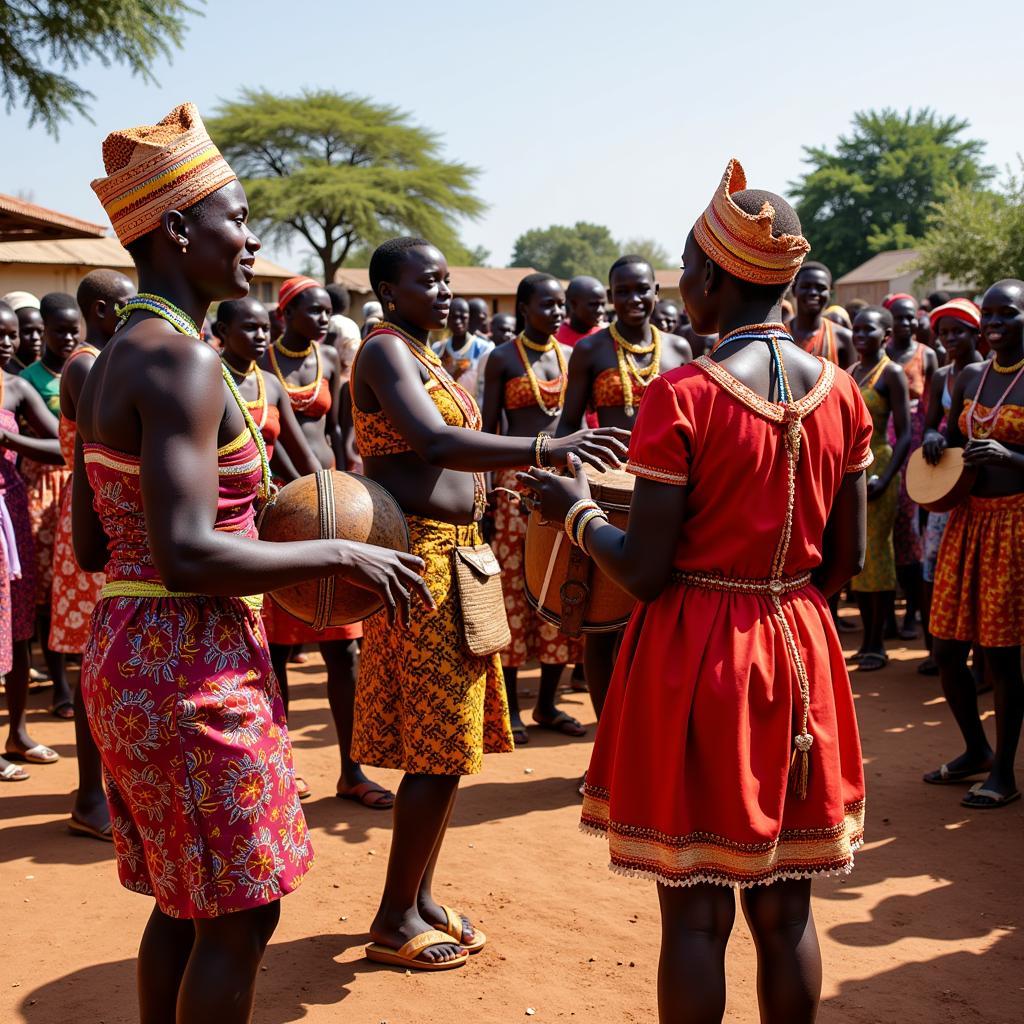A History of Resilience: Exploring African American Protest Literature
African American Protest Literature, a powerful genre with deep historical roots, gives voice to the struggles, triumphs, and ongoing fight for equality faced by Black Americans. From the searing indictments of slavery to contemporary explorations of systemic racism, this body of work serves as a testament to Black resilience and a call for social change.
Early Voices of Resistance: Laying the Groundwork
 Early African American Protest Writing
Early African American Protest Writing
The origins of African American protest literature can be traced back to the 18th century, with writers like Phillis Wheatley and Olaudah Equiano using their narratives to challenge the horrors of slavery. Wheatley, the first published African American female poet, navigated the complexities of being lauded for her talent while simultaneously being denied basic human rights. Equiano’s autobiography, “The Interesting Narrative of the Life of Olaudah Equiano,” offered a firsthand account of the transatlantic slave trade, exposing its brutality and challenging perceptions of African inferiority.
The Harlem Renaissance: A Flourishing of Artistic Expression
The turn of the 20th century saw the emergence of the Harlem Renaissance, a transformative period in African American art and literature. Writers like Langston Hughes, Zora Neale Hurston, and Claude McKay gave voice to the Black experience with unprecedented nuance and complexity. Hughes, known for his evocative poetry and use of jazz rhythms, explored themes of Black identity, pride, and the enduring struggle for equality. Hurston, a prominent figure of the Harlem Renaissance, brought forth the richness of Southern Black folklore and dialect in her novels and essays.
The Civil Rights Era and Beyond: Amplifying the Call for Justice
The Civil Rights Movement of the mid-20th century marked a pivotal moment in the fight for racial equality, and African American protest literature played a crucial role in galvanizing support and challenging systemic injustices.
Bearing Witness Through Words
Authors such as Richard Wright, James Baldwin, and Ralph Ellison exposed the harsh realities of segregation, discrimination, and the psychological toll of racism. Wright’s “Native Son” offered a searing portrayal of a young Black man trapped by societal forces. Baldwin’s eloquent essays and novels confronted the complexities of race, sexuality, and the human condition.
The Power of Poetry and Personal Narrative
The Civil Rights Era also witnessed the rise of influential poets like Maya Angelou and Gwendolyn Brooks, whose powerful words gave voice to the Black experience. Angelou’s autobiographical masterpiece, “I Know Why the Caged Bird Sings,” explored themes of racism, trauma, and resilience through lyrical prose. Brooks’ poetry addressed issues of social justice, Black identity, and the experiences of women.
The fight for equality continued to fuel literary works in the latter half of the 20th century and into the 21st century. Toni Morrison, Alice Walker, and August Wilson emerged as leading voices, exploring themes of family, history, and the enduring legacy of slavery.
Contemporary Voices: Carrying the Torch Forward
 Contemporary African American Writers
Contemporary African American Writers
Today, African American protest literature continues to evolve, addressing contemporary issues such as police brutality, mass incarceration, and the ongoing struggle for social justice. Ta-Nehisi Coates’ “Between the World and Me,” a powerful letter to his son about being Black in America, ignited conversations about race and racism. Jesmyn Ward’s haunting novels explore themes of poverty, addiction, and the resilience of the human spirit.
From its earliest forms to the present day, African American protest literature serves as a vital record of the Black experience and a testament to the enduring power of the human spirit to challenge injustice. By amplifying marginalized voices and sparking dialogue, these works continue to inspire generations of readers to work towards a more just and equitable society.
FAQs About African American Protest Literature
What are some key characteristics of African American protest literature?
African American protest literature often centers on themes of racial injustice, the struggle for equality, and the experiences of Black individuals and communities facing oppression. It aims to challenge societal norms, raise awareness, and advocate for social change.
How has the genre evolved over time?
From early slave narratives to contemporary works exploring intersectionality, the genre has adapted to reflect the changing sociopolitical landscape. While consistently addressing issues of race and equality, the themes, styles, and forms of protest have evolved to encompass a wider range of experiences and perspectives.
Why is it important to read African American protest literature?
These works offer crucial insights into the historical and contemporary realities of racism and discrimination. By engaging with these diverse perspectives, readers gain a deeper understanding of the fight for social justice and the ongoing struggle for equality.
What are some other resources for exploring this genre?
To delve further, explore resources like the [African American history and culture] section on Omenka Mag or learn about specific aspects, such as the [African American struggle for equality timeline].
How can I support contemporary African American writers?
Support these authors by reading their works, attending literary events, and amplifying their voices. You can also learn about [African American women& 39] writers making significant contributions to the literary world.
Need support? Contact us at +255768904061, email kaka.mag@gmail.com, or visit us in Mbarali DC Mawindi, Kangaga, Tanzania. Our customer service team is available 24/7.

